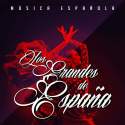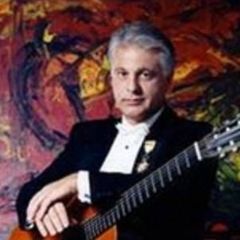
Camaron De La Isla
地区:西班牙
生日:1950-12-05(射手座)
经纪公司:
Camarón de la Isla (December 5, 1950 – July 2, 1992), was the stage name of a spanish (Gypsy) flamenco singer José Monje Cruz who is sometimes also cr
Camarón de la Isla (December 5, 1950 – July 2, 1992), was the stage name of a spanish (Gypsy) flamenco singer José Monje Cruz who is sometimes also credited as Camarón de la Isla.
Monument to Camarón in La Línea de la Concepción
He was born in San Fernando, Cádiz, Spain. His mother was Juana Cruz Castro, a basket weaver ("La Canastera"), whose gift of singing was a strong early influence. His father, Juan Luis Monje, was also a singer as well as a blacksmith, and had a forge where Camarón worked as a boy. His uncle José nicknamed him Camarón (Spanish for "Shrimp") because he was blonde and fair skinned. At the age of eight he began to sing at inns and bus stops with Rancapino to earn money. At sixteen, he won first prize at the Festival del Cante Jondo in Mairena de Alcor. Camarón then went to Madrid with Miguel de los Reyes and in 1968 became a resident artist at the Tablao Torres Bermejas where he remained for twelve years.
There he met Paco de Lucía with whom he recorded nine albums between 1969 and 1977. The two toured extensively together during this period. As Paco de Lucía became more occupied with solo concert commitments, Camarón worked with one of Paco's students, Tomatito.
In 1976, at the age of 25, Camarón married Dolores Montoya, a Romani girl from La Línea de la Concepción whom he nicknamed "La Chispa" (The Spark). At the time La Chispa was only 16. The couple had four children.
Many consider Camarón to be the single most popular and influential flamenco cantaor (singer) of the modern period. Although his work was criticized by some traditionalists, he was one of the first to feature an electric bass in his songs. This was a turning point in the history of Flamenco music that helped distinguish Nuevo Flamenco.


























